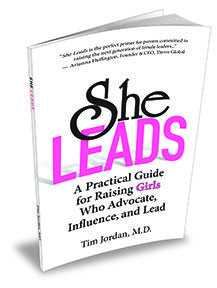Parents say that they value empathy and character over achievement, but their actions don’t match their values. I’ve had audiences of parents globally list their ‘end in mind’ for what kind of people they hope their children become at age 30. The list typically contains qualities like kindness, caring, of service, happy, high integrity, balanced, and doing their passion. I have never in 30 years had parents offer items like straight A’s, national youth basketball champion, attended an elite college, or attained becoming the CEO of a Fortune 50 company. Ask yourself these questions: where does most of my energy go in my parenting? Where is the focus in our family? Is it on grades and homework and making the best club teams? My experience and research out of Harvard finds that the message kids receive from their parents contradicts their end in mind.
A majority of youth say that parents and teachers are more concerned with achievement than kindness and caring. And these same kids reported that they and their peers’ value personal success, i.e. achievement and happiness, over empathy and compassion. Despite parents’ intentions, there is something in their everyday words and actions that is drowning out messages about compassion.
Empathy has been declining for 30 years
There is evidence that empathic concern and perspective taking has been declining over the past 30 years. One cause of this decline may be the increased level of stress and unhappiness amongst people. Stress tends to cause people to turn inward and focus more on themselves than others. A famous study in the 1970’s demonstrated that seminary students who were rushed were less likely to stop to help a person in need. These students were told to write a sermon about the parable of the good Samaritan and then go across campus to deliver it. Of the half who were told to rush, only 10% stopped to help a person acting like he needed help vs 60-70% of the students who were told to take their time. I worry that our busy and stressful lives prevent us from being aware of the needs of others and to act with compassion.
Why is the development of empathy so important? Empathetic people are generally happier, healthier, and more effective at their jobs. They are more eager to collaborate, effectively negotiate, have stronger interpersonal connections, demonstrate compassion, and offer support. They are better team players who are more willing to work with others to solve problems. In a recent study of nearly 900 middle school students, researchers found that participants with higher levels of empathy were more willing to stand up to a bully on behalf of someone outside their peer group. This is a critical finding because we know from research that the most effective antibullying programs in schools are ones that focus on the bystanders.
What parents can do
As the new school year begins, raise your self-awareness about what messages you are imparting to your children. Focus more on the journey than the destination and don’t overfocus and overvalue grades and test scores. At parent-teacher conferences be more interested in what kind of citizen and friend your daughter is. Use everyday examples in movies, TV shows, books, news stories, and their personal lives to have kids get into the shoes of other people and see things from their point of view. Encourage open dinner table discussions about ethical dilemmas to help them appreciate various perspectives. Have your kids take the perspective of people in leadership roles like principals, coaches, and politicians to raise their level of empathy and allow them to see themselves as a leader. Teach your children to respect people of all types despite perceived differences. Acknowledge them whenever they go out of their way to show kindness and compassion, in big ways and small. Higher levels of empathy and understanding produces more courage to do the right thing and to speak out against injustice.
If your end in mind is raising kids to become compassionate, kind, and empathetic adults, parent like it.
Want to learn more about raising strong leaders? Check out Dr. Jordan’s new book: She Leads: A Practical Guide for Raising Girls Who Advocate, Influence, and Lead. Look for it in bookstores, Amazon, and any other place books are sold.
